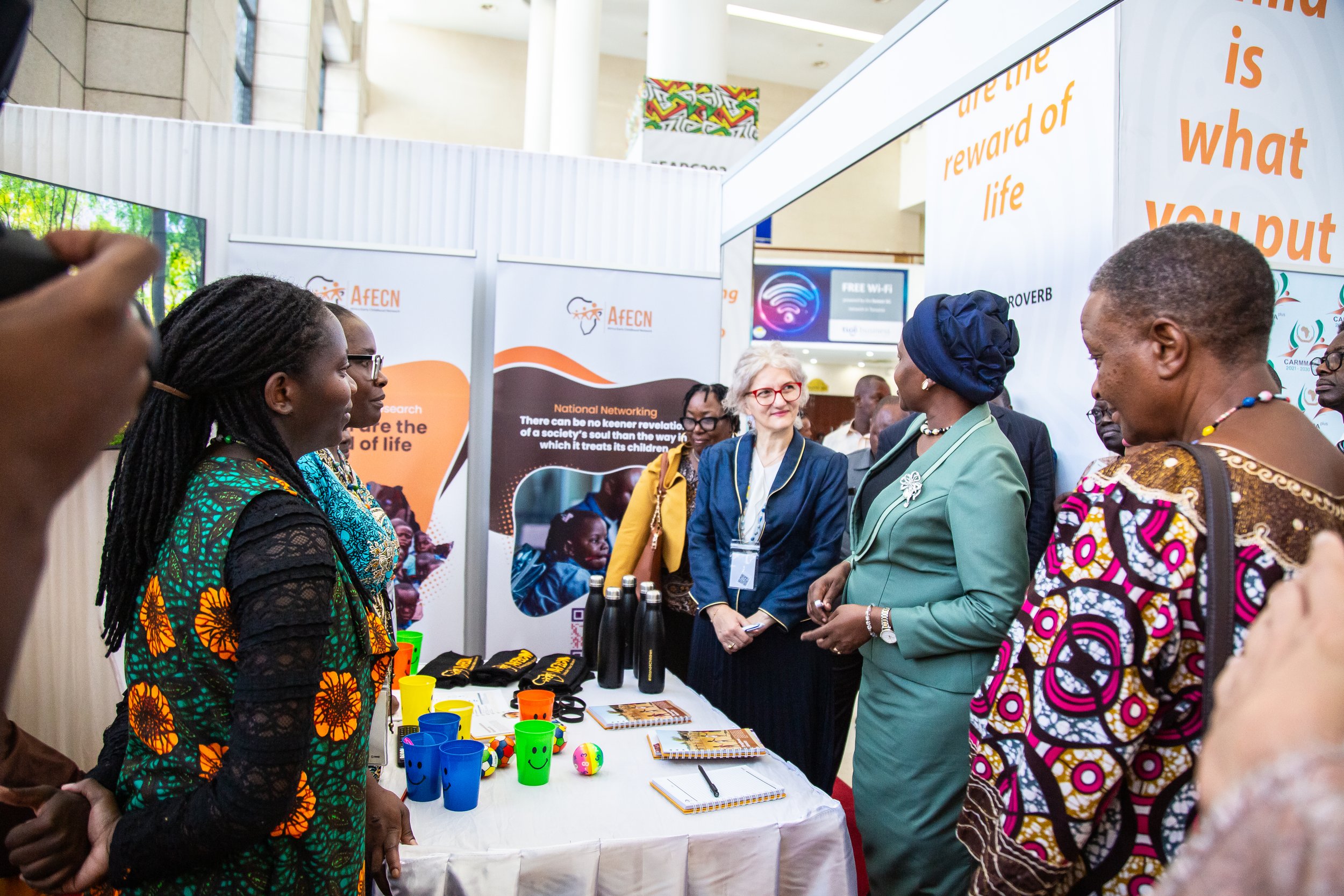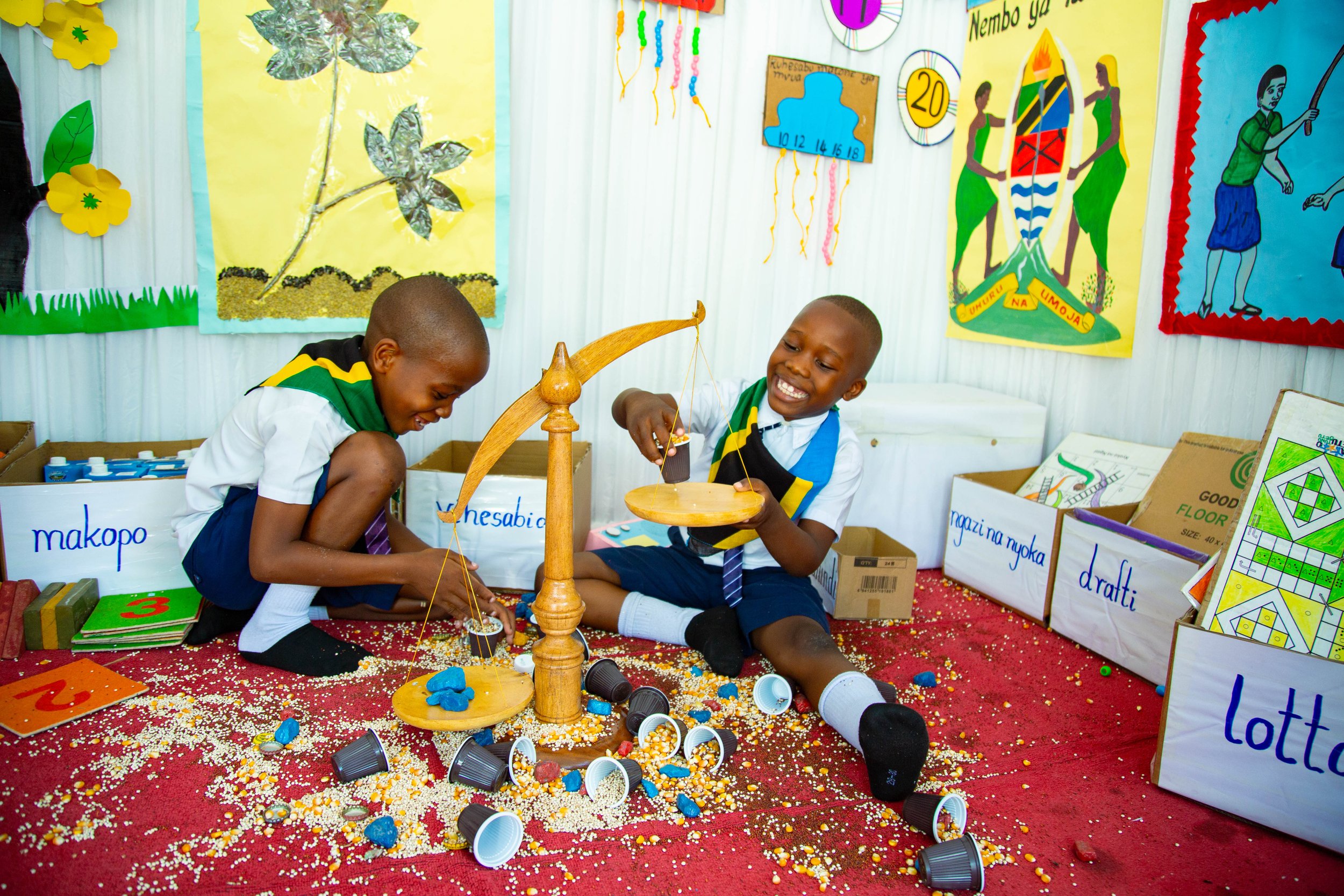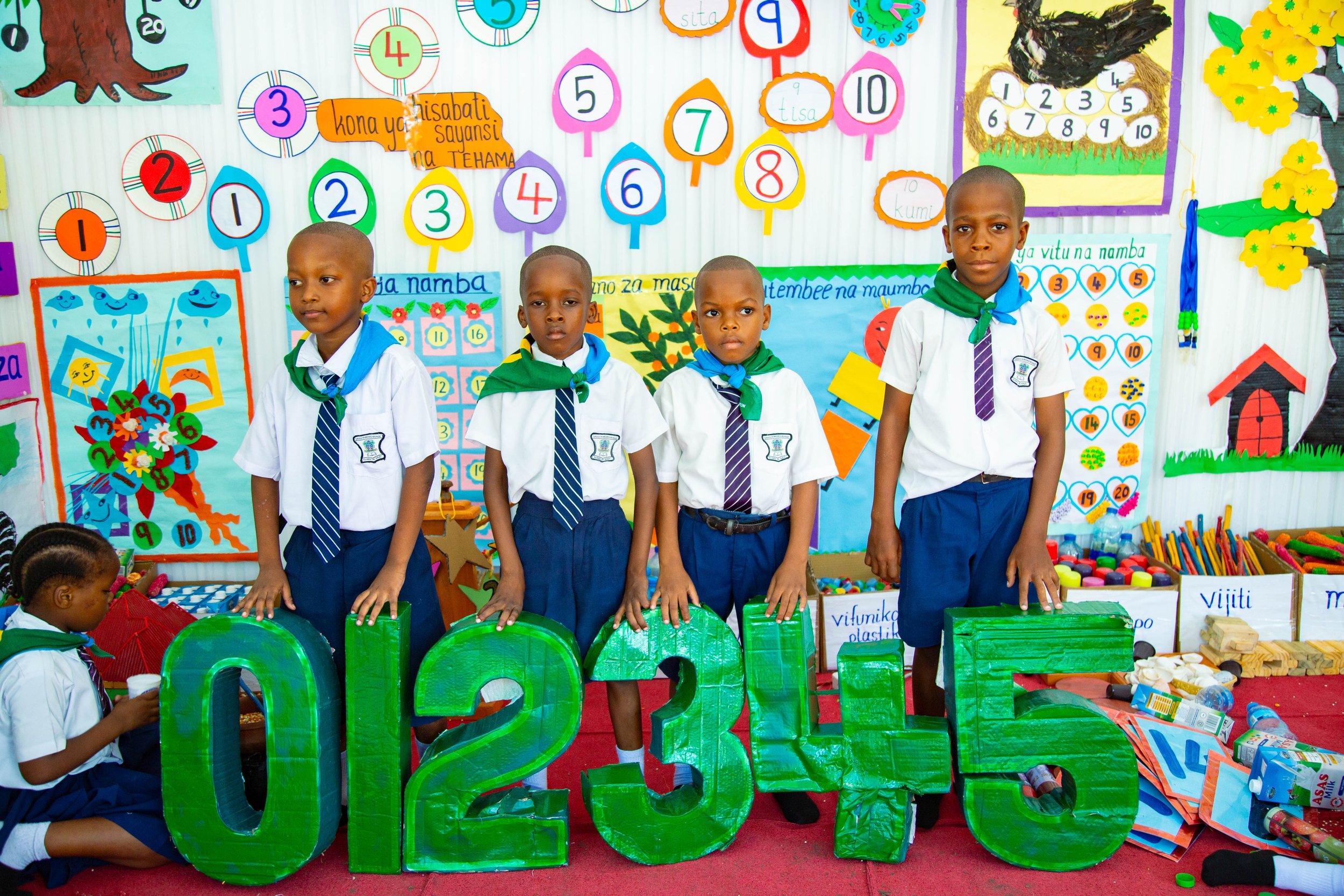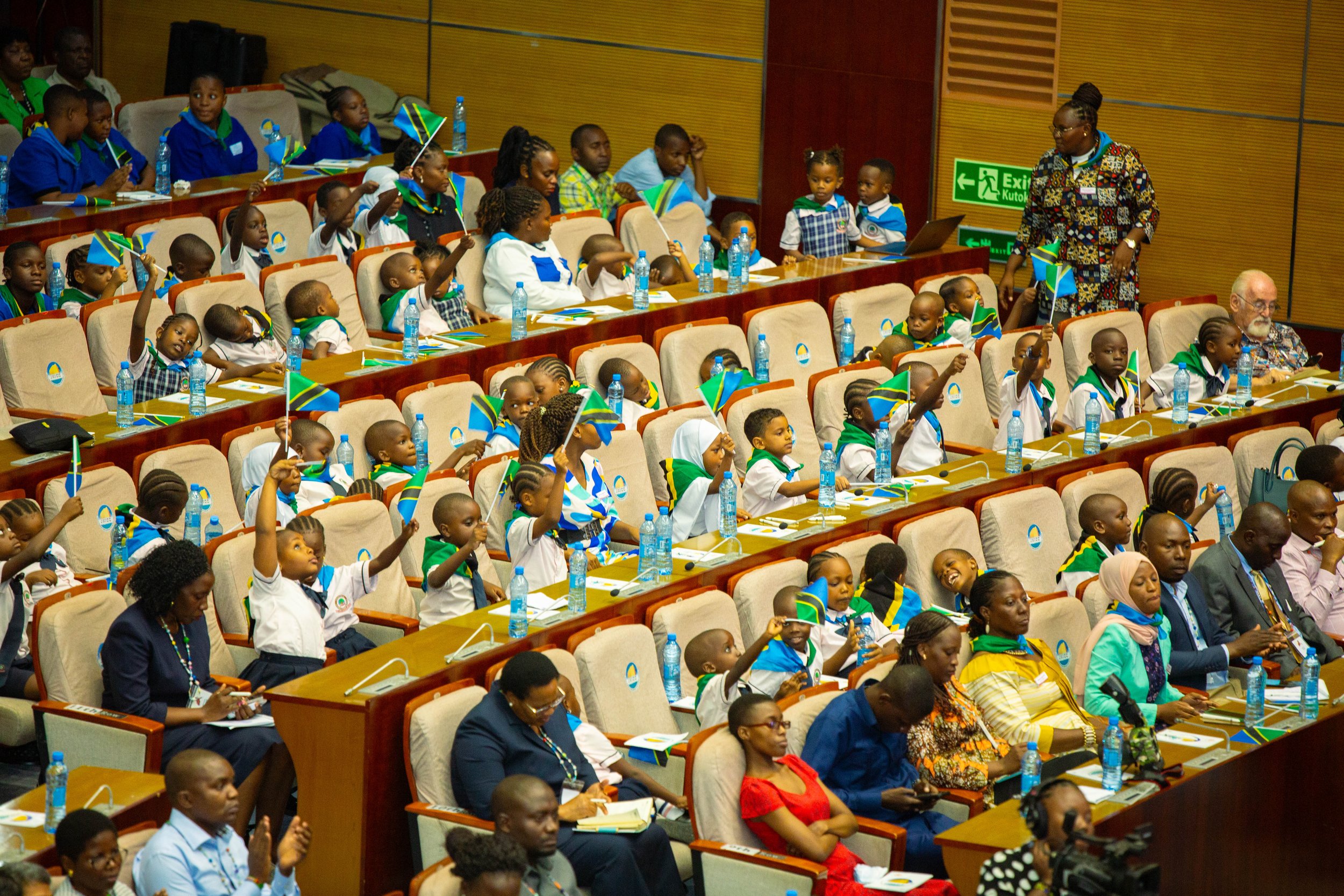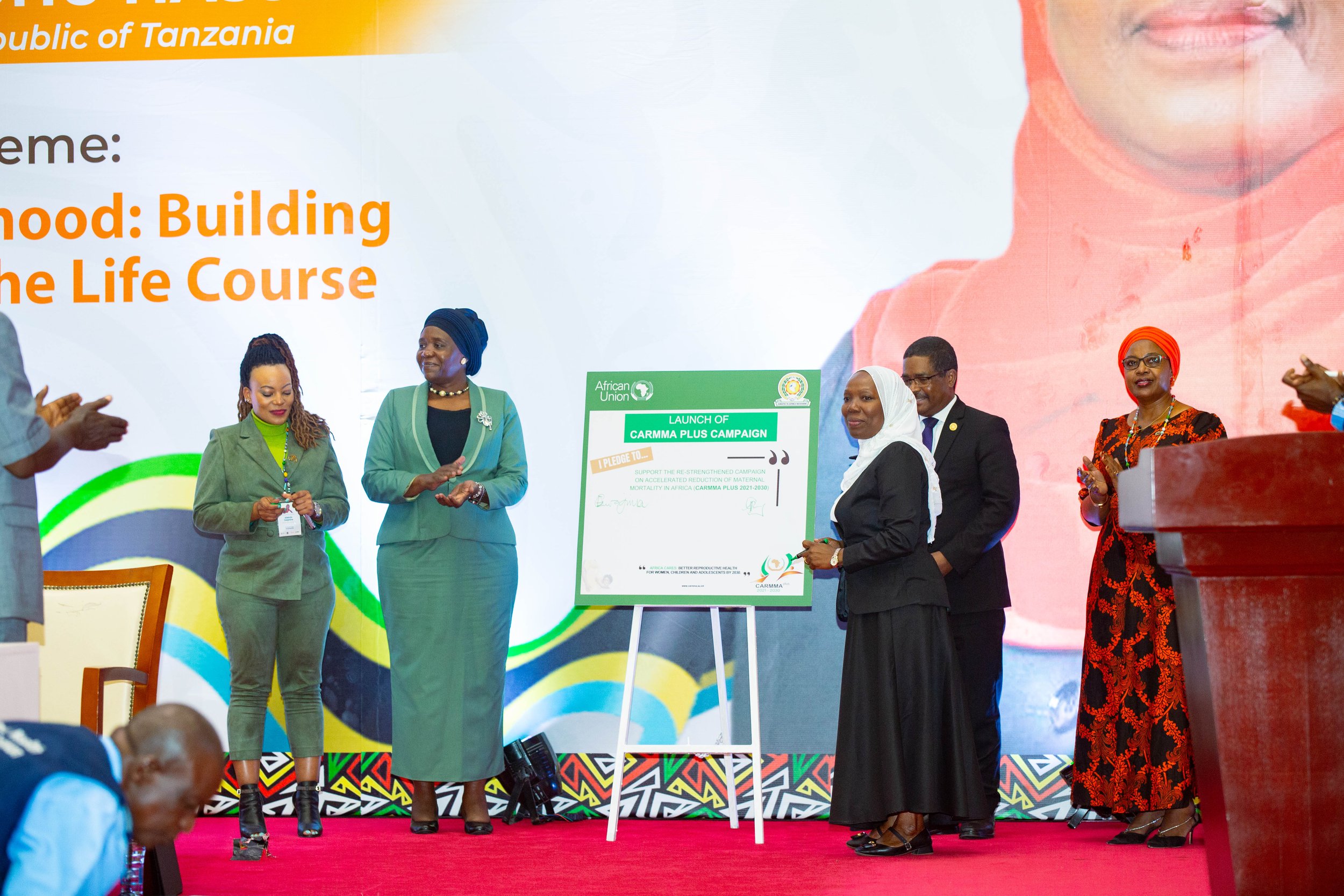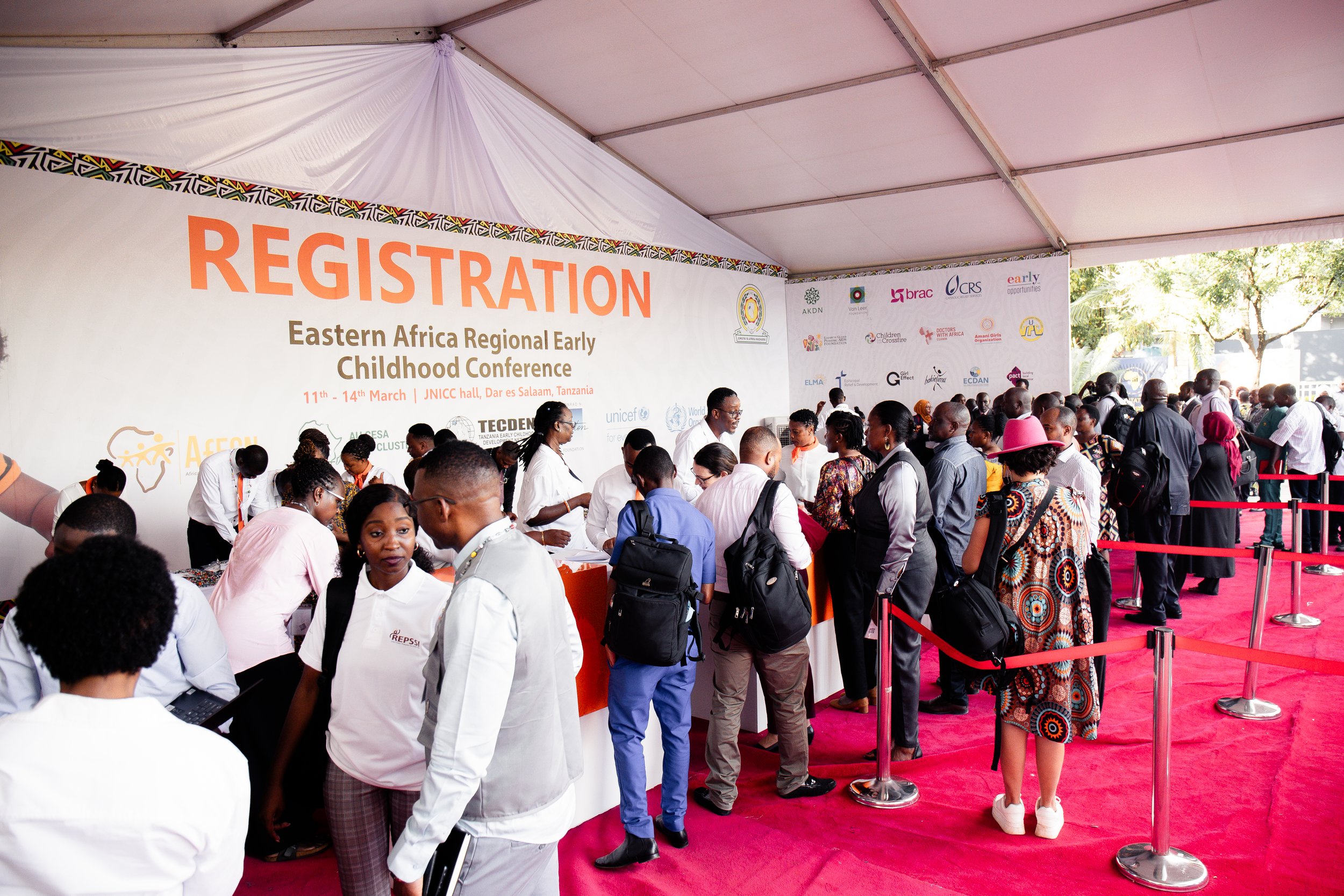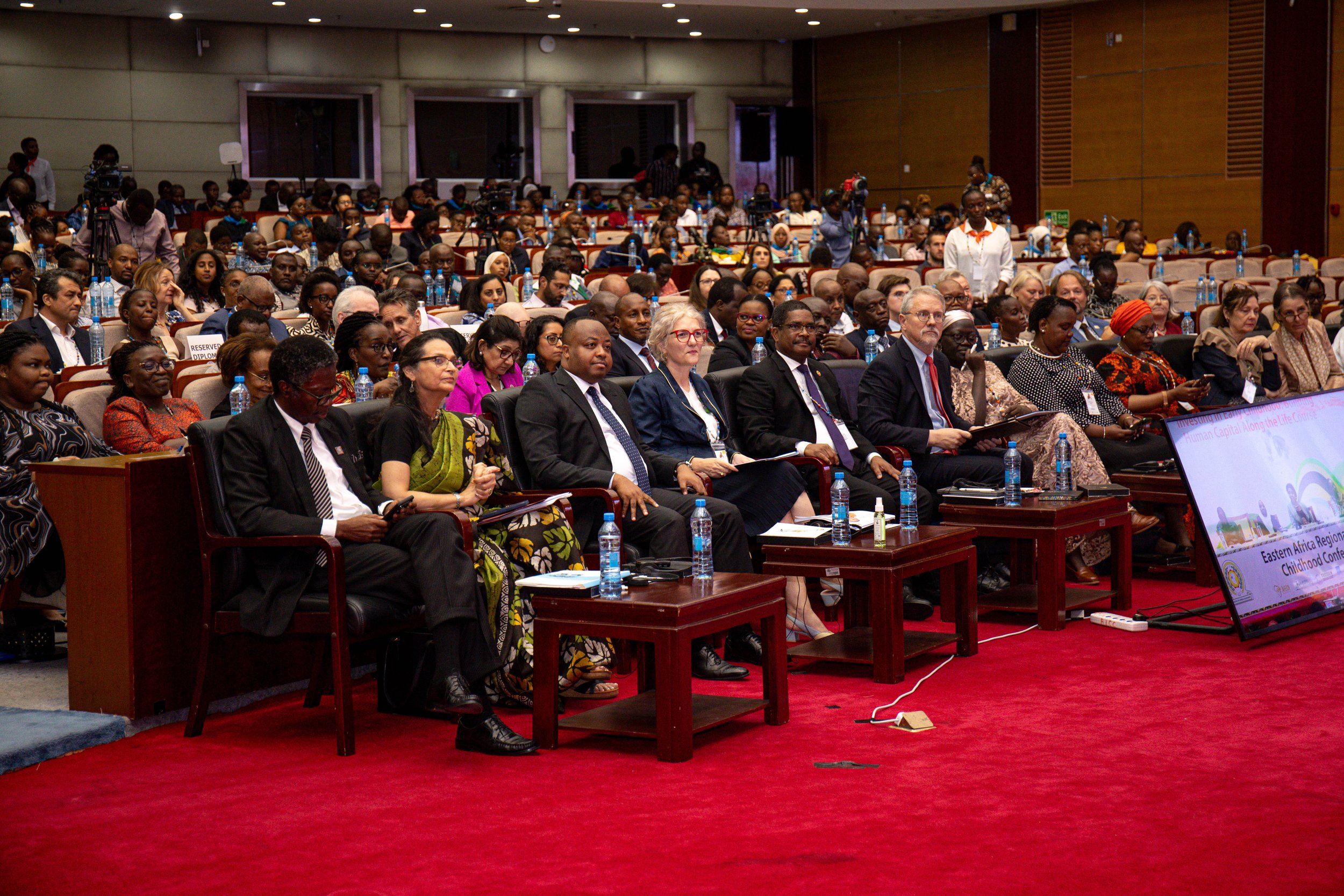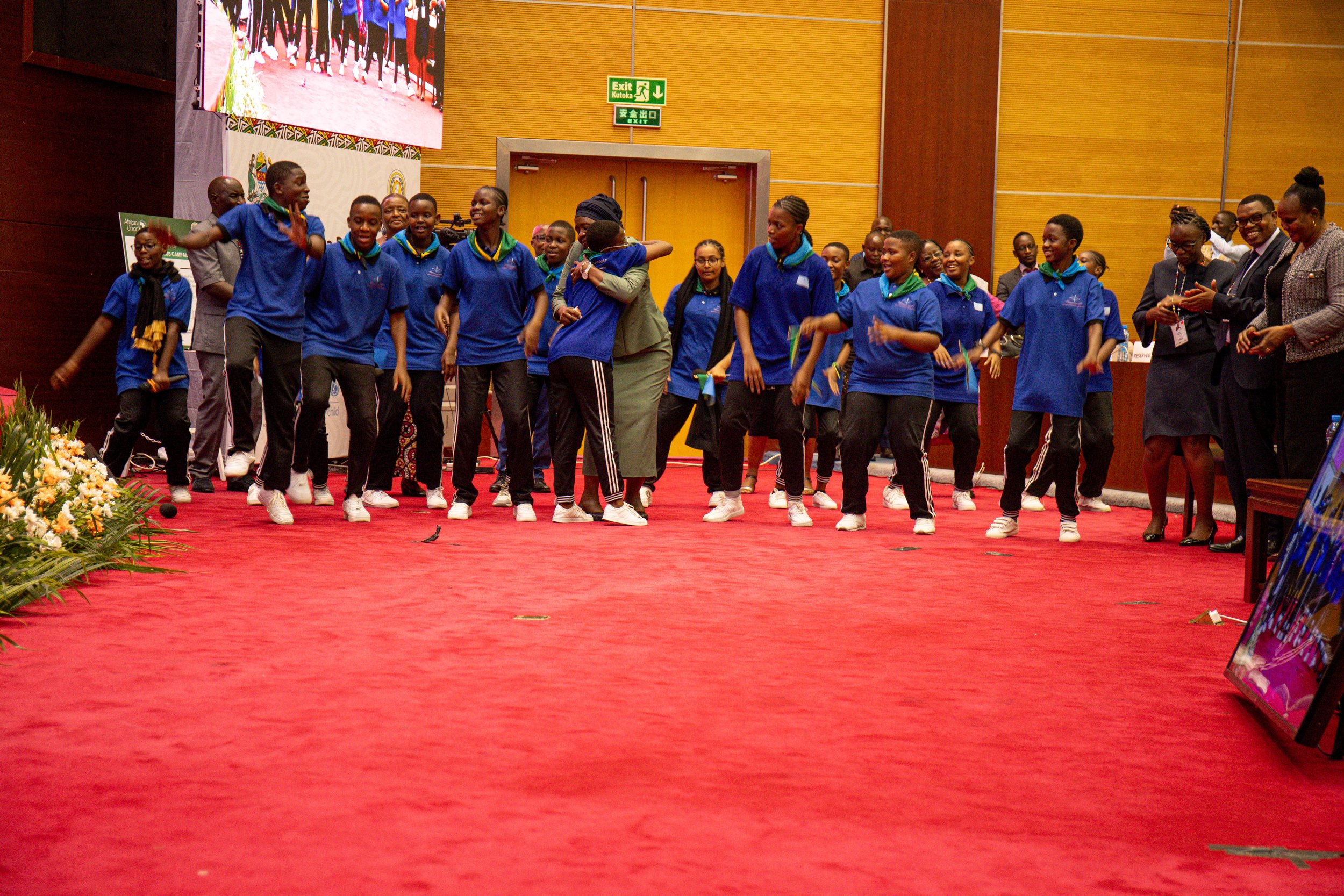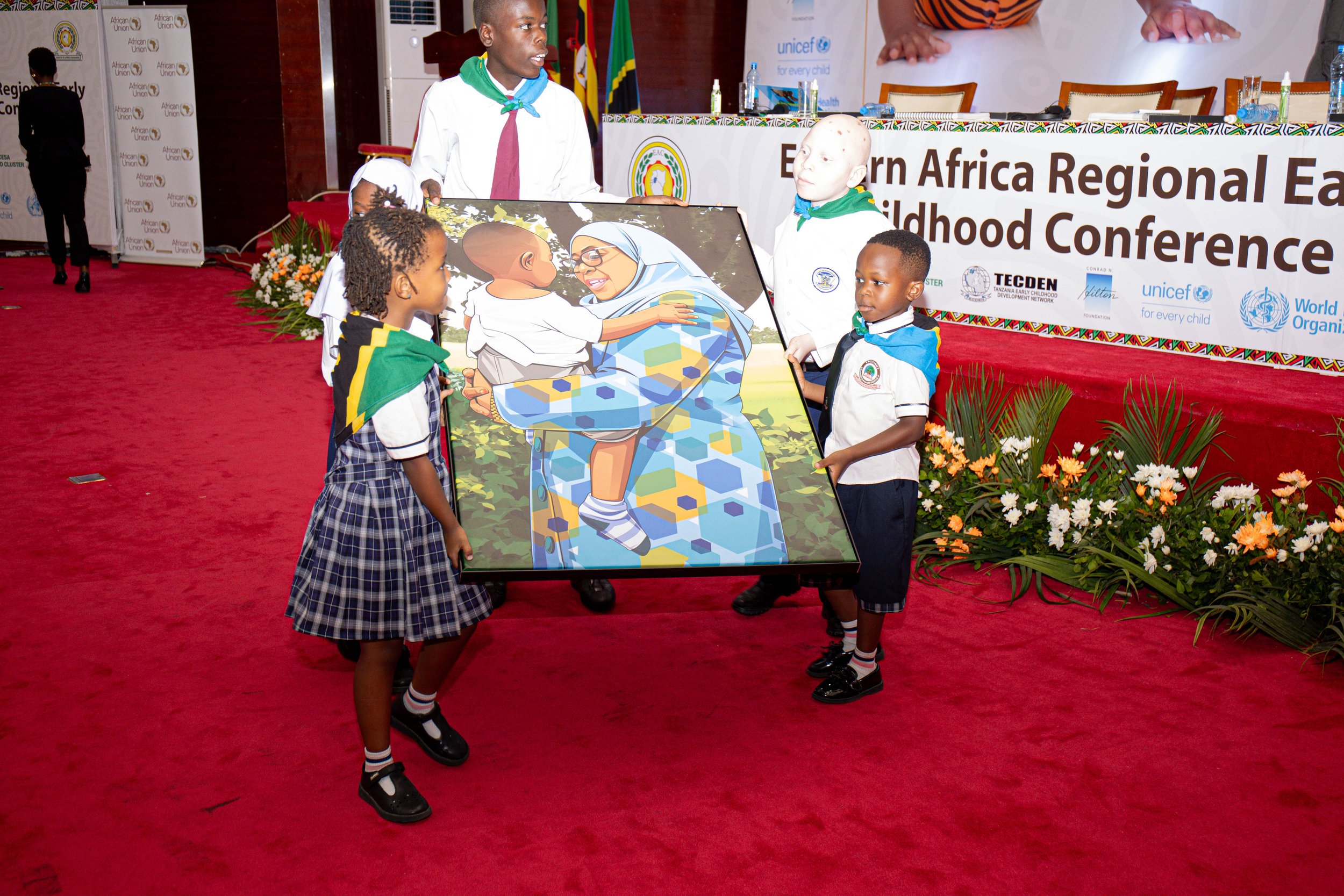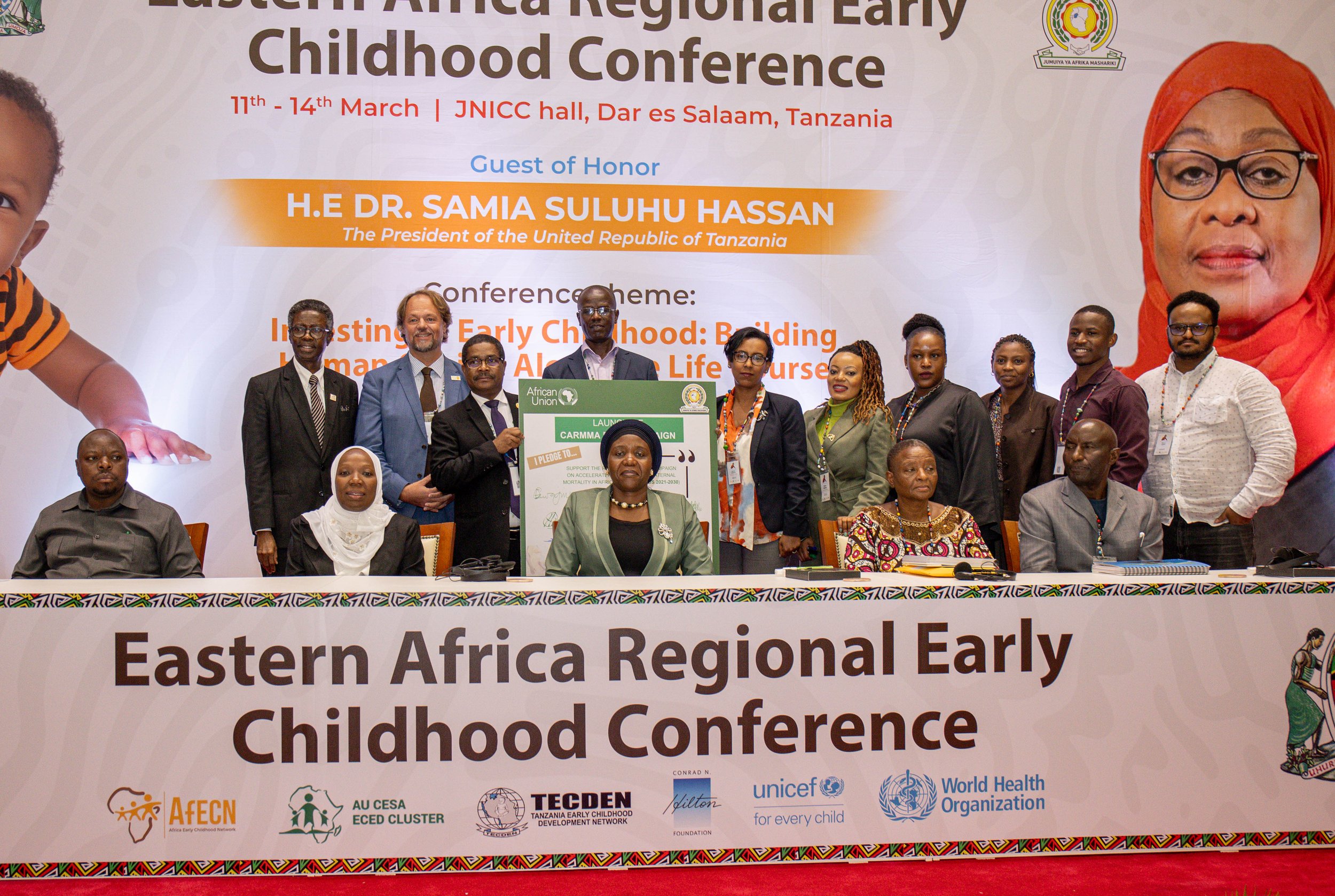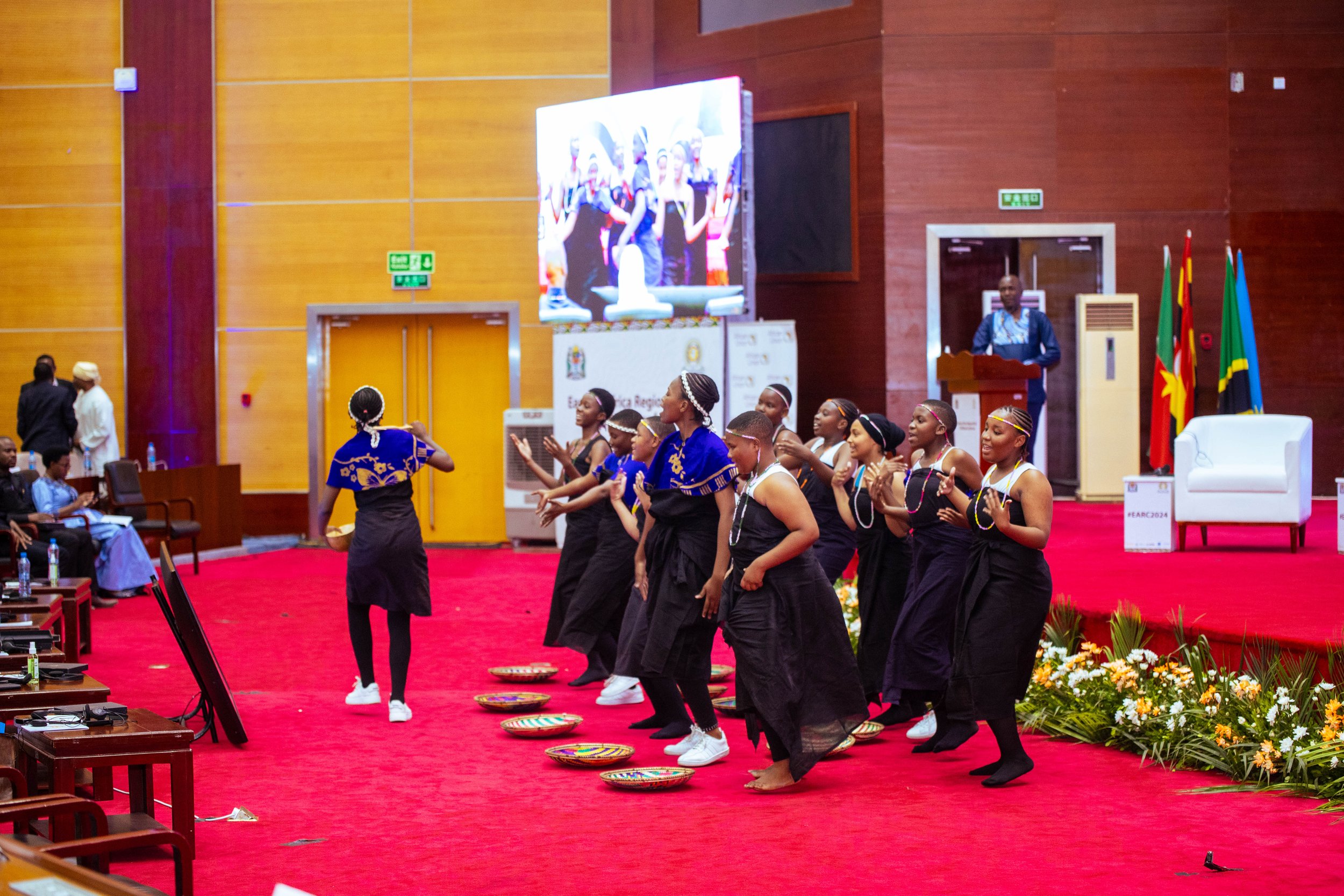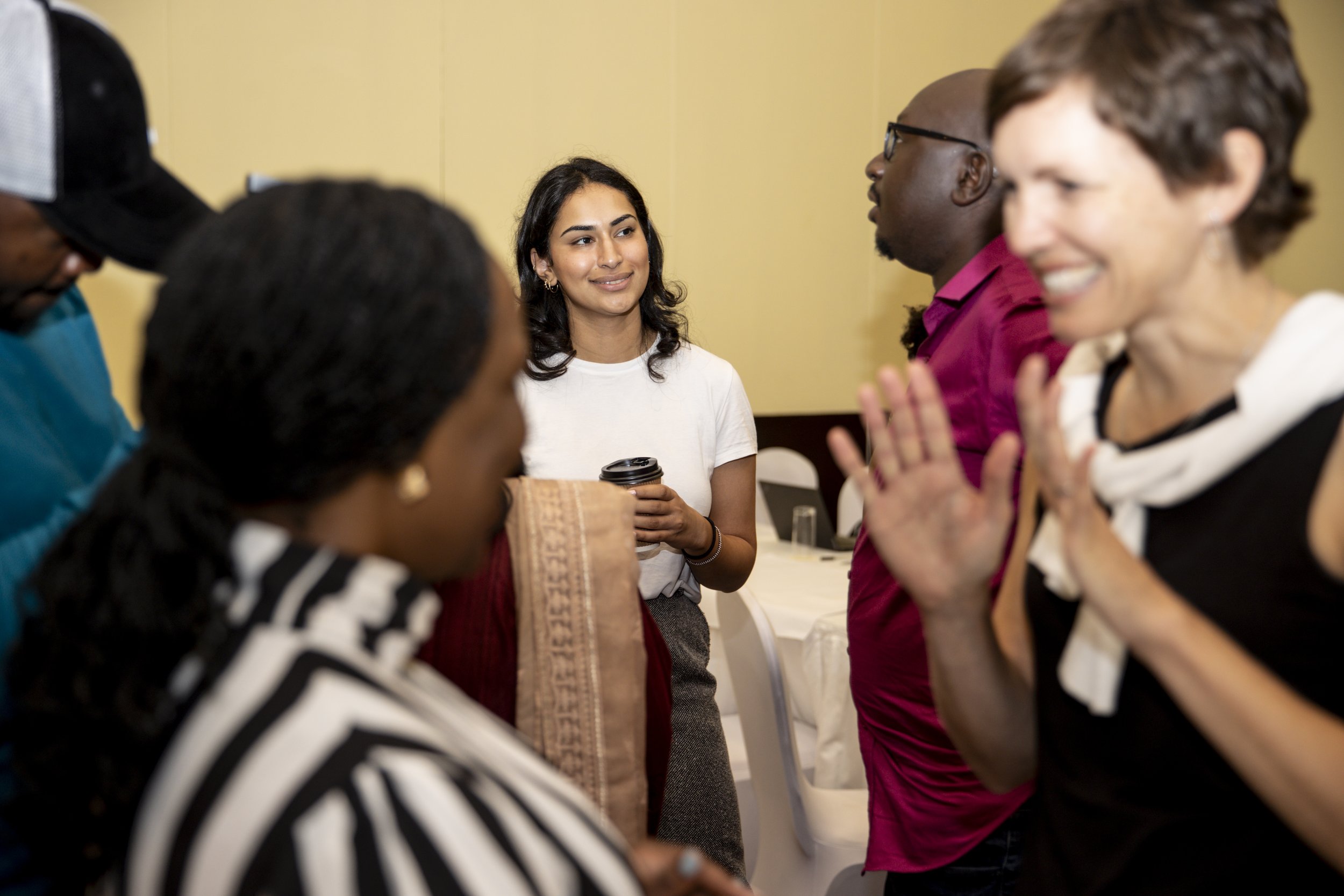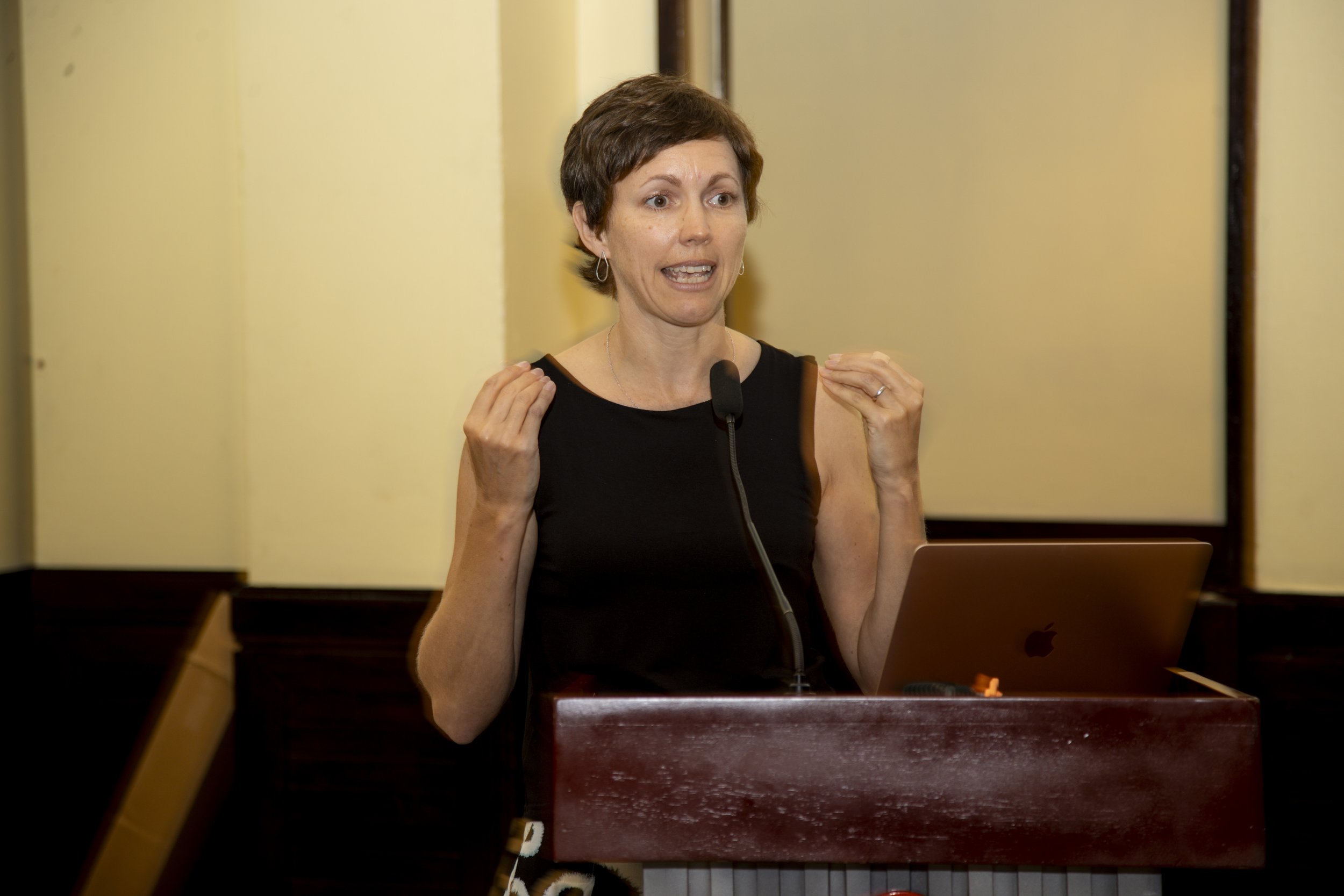Presentations
Main Session and Parallel Session Presentations ON 12TH mARCH 2024
MAIN SESSIONS
Session 3: Children and Families
Keynote Presentations:
— Dr. Oliver Petrovic | Presentation
— Ms. Amanda Devercelli | Presentation
Session 4: Children in Crisis
Keynote Presentations:
— H.E Betty Murungi | Presentation
Keynote Address:
— Hon Mr. Justice Hillary Chemitei | Presentation
PARALLEL SESSIONS
SUB-THEME: EMPOWERING PARENTS, CAREGIVERS, AND COMMUNITIES
1.1 Creating home environments that foster positive early childhood outcomes:
University of Dodoma: Community Engagement in Early Childhood Development and Care: Experiences from Teachers and Parents in Dodoma region, Tanzania. (Presentation)
Pact Tanzania: Assessment of Caregiver Parenting Practices Towards Creating a Supportive Home Environment for Child’s Early Development in Tanzania. (Presentation)
Open University of Tanzania: Ubuntu as a Collective Community Empowering Tool on Effective Early Childhood in Tanzania – A Case of Mama Mkubwa Model. (Presentation)
Help a Child Malawi (HAC): Improving Knowledge, Attitude and Practices on Parenting Skills for Mothers and Fathers in Malawi. (Presentation)
University of Rwanda: The effect of the Sugira Muryango home visiting interventions on children’s mental health in Rwanda. (Presentation)
1.2 Creating home environments that foster positive early childhood outcomes:
Assessing enhanced community-based rehabilitation (ECBR) of children with delays and disabilities (CWDD) in Mozambique.
Ministry of Education Science and Technology, Tanzania: Community participation for child development in addressing vulnerabilities. (Presentation)
Emory University: Home visiting or community group sessions? Stakeholders’ perceptions about the optimal approach for delivering a parenting program in Western Kenya. (Presentation)
Lively Minds: How Lively Minds has empowered over marginalised 100,000 rural parents in 2500 communities in Ghana and Uganda to become pre-primary providers. (Presentation)
Aga Khan University- Institute for Human Development, Kenya: Bridging the Gaps: Developing a Gender and ECD Course to Enhance Male Caregiver and Frontline Worker Engagement in Early Years. (Presentation)
1.3 Quality inclusive early childhood care and development (IECD):
University of Pretoria: Building an inclusive early childhood development system for young children with disabilities and their families in Africa. (Presentation)
Indiana University School of Medicine: Outcomes and Next Steps for Pepea: A Behavioral Training Intervention for Families of Children with Autism in Western Kenya. (Presentation)
Humanity & Inclusion, Rwanda: Nurturing care to children with developmental delays and disability in Rwanda. (Presentation)
Perkins School for the Blind, Global: Learning through Play and Learning to Play: An Approach for All Children (Presentation)
Catholic Relief Services, Rwanda: Collaborating with community and local authorities in establishing and delivering Integrated ECD services.
1.4 Building school readiness: Play as a tool for learning at home and at school:
ideas42, South Africa: Using behavioural design to support South African caregivers to engage in play. (Presentation)
Save the Children, Rwanda: Championing Play through parents’/caregivers’ empowerment. (Presentation)
University of Rwanda, Center for Mental Health, Rwanda: Long-term spillover effects of household coaching in playful parenting on siblings of treated children: A mixed methods study. (Presentation)
Aga Khan University, Tanzania: Early Childhood Development in changing time: Resilience and coping with changes.
UNICEF and National Department of Basic Education South Africa: The importance of play in early learning: Knowledge, Attitudes and Practices of parents and caregivers with children birth to six years. (Presentation)
1.5 Interventions targeting teenage mothers:
Kisumu Medical and Education Trust (KMET), Kenya: What Adolescent Mothers Need: A Survey by KMET in collaboration with the County Government of Homa Bay (Presentation)
Building Capacity of Young Women as Professional Childcare Micro-entrepreneurs: The experience from BRAC Childcare Microenterprise Initiative in Tanzania.
Self-Help Group, Regional Psychosocial Support Imitative (REPSSI), Zambia; Breaking the Cycle of Poverty for Adolescent and Young Mothers (AYM’s) through Economic Strengthening. (Presentation)
Amani Girls Organization, Tanzania: iCare – Empower Her, Nurture the Future. (Presentation)
Regional Psychosocial Support Initiative (REPSSI), Zambia: Promoting Mental Health and Psychosocial Wellbeing of Adolescent and Young Mothers (AYM’s). (Presentation)
1.6 Innovative models for delivering parenting education (SBCC):
Stellenbosch University, Tanzania & Zambia: Using WhatsApp support groups to promote responsive caregiving, caregiver mental health and child development in Tanzania and Zambia.
WeCare Foundation, Tanzania: Early Childhood development training to pregnant women in Mbeya city through social network. (Presentation)
Center of Economic and Social Research, University of Southern California, Kenya (Kisumu, Homa Bay and Vihiga counties): The Msingi Bora group-based parenting intervention in rural Kenya. (Presentation)
Feeding the Change, Mozambique: Evidence-Based Development of Early Childhood Development (ECD) Materials for Caregivers. (Presentation)
1.7 Empowering families for quality childcare and early learning):
UNICEF Tanzania: Connecting Facts with Emotions: Responsible Parenting and Family Care. (Presentation)
Thrive, Tanzania: Study design and baseline findings of the Kizazi Kijacho Randomized Controlled Trial of a parenting intervention and an Unconditional Cash Transfer program in Tanzania. (Presentation)
ideas42, Madagascar and Rwanda: Enhancing early childhood development through behavioural designs for cash transfers. (Presentation)
Catholic Relief Services, Kenya: Family preservation and sustainable reintegration through positive parenting. (Presentation)
University of Dodoma, Tanzania: The Home Environment in Selected Rural Community in Morogoro Region and its Contribution in Addressing Learning Poverty among Young Children in Tanzania. (Presentation)
1.8 Overcoming barriers to holistic ECD service provision:
Pact Tanzania, Tanzania: Early Childhood Development Services Landscape in Tabora and Mbeya, Tanzania. Identifying Opportunities and Overcoming Barriers. (Presentation)
Academic Model Providing Access to Healthcare (AMPATH), Eldoret, Kenya: The impact of a narrative film intervention in addressing stigma-related to disability in Western Kenya. (Presentation)
Lindi Women Paralegal Aid Centre (LIWOPAC), Tanzania: Availability of enough food and proper nutrition to nursery pupils in public school Lindi Region. (Presentation)
Kisii University, Kenya, Ethiopia: Teachers in the Home: Strategies Children Use to Support School-readiness skills in their younger siblings in Kenya and Ethiopia. (Presentation)
Grow Great Campaign, South Africa: Insights from Flourish: a national network of community-based antenatal and postnatal classes in South Africa.
1.10 Community-driven systems change to improve ECD:
Firelight Foundation, Malawi, and Zambia: Community-driven systems change – a transformative and sustainable approach to improving early childhood development in eastern and southern Africa. (Presentation)
Maranatha Grassroots Institute, Zambia: Creating stronger community systems to support ECD over the long-term: A case study of community-driven systems change for ECD in Zambia.
Children of Hope Organization, Malawi: Communities coming together to raise their children: A case study of community-driven systems change for ECD in Malawi. (Presentation)
SUB-THEME: SYSTEMS STRENGTHENING
1.9 The role of men in the lives of young children:
Regional Psychosocial Support Initiative (REPSSI), Zambia: Fostering Male Caregiver Involvement in Childcare Through Enhancing Household Mental Health and Psychosocial (MHPSS) Environment. (Presentation)
Tanzania Home Economics Organization (TAHEA MWANZA), Tanzania: Designing a fatherhood intervention together with fathers in Mwanza, Tanzania. (Presentation)
Men Engage, Kenya Network (MENKEN): Harnessing Fatherhood for positive impact on young children. (Presentation)
Boston College, Research Program on Children and Adversity, Rwanda: A Longitudinal study of the effects of an early life parenting and family violence prevention intervention in Rwanda. (Presentation)
Ministry of Community Development, Gender, Women and Special Groups, and UNICEF Tanzania: Gender- Transformative Parenting: Challenging Gender Norms and Inequalities for all Children to Thrive in Tanzania.
2.1 Assessing integration and delivery of ECD services in multiple settings:
PATH, Ethiopia: Assessing early childhood development (ECD) integration into primary health care in Addis Ababa, Ethiopia. (Presentation)
FHI 360, Rwanda and Zambia: Supporting workforce to implement & scale playful parenting. (Presentation)
D-tree, Zanzibar, Tanzania: Measuring the effect of a community health worker program delivering ECD-services on nurturing care targeting children and caregivers in Zanzibar. (Presentation)
Doctors with Africa bMM, Tanzania: A necessary interplay: the health system as a privileged entry point for the delivery of ECD interventions. (Presentation)
2.2 Building a resilient ECD workforce:
REPSSI (Regional Psychosocial Support Initiative), Mozambique: Endline study result of project for strengthening caregivers’ mental health and responsive caregiving skills to improve early childhood development in Mozambique. mental health and responsive caregiving capacities of caregivers for improved ECD in Mozambique. (Presentation)
North-West University, South Africa: Professionalising ECCE in South Africa is not child’s play! Determining skills gaps and implications for future sector development. (Presentation)
Alum Early Years Fellow, North Macedonia, World Bank: Measurement: The missing puzzle piece in early childhood education in North Macedonia (insights from MELQO). (Presentation)
Three Stones International, Rwanda; Mozambique: Lessons learnt from implementing a Gender-Responsive Play-based teacher training in Early Childhood Education in Rwanda and Mozambique. (Presentation)
2.3 ECD interventions focusing on experiences from the field:
, Early Years Fellows, Kenya, Bangladesh, and Cameroon World Bank: Guidance Note on Home Based Childcare (HBC) for Low-income Communities. (Presentation)
World vision Kenya, Kenya: Preparing Early grade learners for transition to primary school.
Save the Children, Ethiopia: Facilitating Children’s Learning in an Emergency Context- Ethiopia. (Presentation)
University of Malawi, Malawi: Community involvement in improving literacy skills. (Presentation)
2.4 Strengthening policy and systems for delivering ECD:
Men Engage Kenya Network (MENKEN) – Male Engagement as a key advocacy ingredient.
Ifakara Health Institute, Tanzania: Integration of ECD/Nurturing Care Components into Sector Policies and Services Guidelines. (Presentation)
Children in Crossfire, Tanzania: Tanzania: Catalysing ECD Policy to Practice in Tanzania. (Presentation)
Early Years Fellows, World Bank, Egypt, Jordan, and Tanzania: Redefining early childhood education environments: Guidance note on designing and implementing flexible spaces in Low- and Middle-Income Countries (LMICs).
Save the Children, Global including Africa region (Tanzania, Kenya, Uganda etc): 10 Years of Building Brains Implementation: An Evidence Synthesis of Uptake and Impact to Date. (Presentation)
2.5 Ensuring nurturing care for all: How collecting systems-level indicators contributes to change in East Africa:
Strengthening Early Childhood Development/Nurturing Care Systems Monitoring and Evaluation (M&E) in Tanzania: Assessment of the barriers and opportunities for ECDE System Performance Strengthening in Tanzania. (Presentation)
Early Childhood Development Systems in Mozambique: Findings on key ECD indicators. (Presentation)
Early Childhood Development Network for Kenya (ECDNeK), Kenya Strengthening ECD Systems in Kenya: A Collaborative Research Approach. (Presentation)
SUB-THEME: SCALING UP AND INNOVATING
3.1 Championing holistic and inclusive ECCE using play-based approaches:
Hope Worldwide South Africa, South Africa: Comparing Digital vs Face to-face Efficacy of Delivery Models in ECD Parenting programmes: The Caregiver Learning through Play (CLTP) programme example in South Africa. (Presentation)
BRAC International, Uganda: BRAC Green Play Lab Concept: Lessons in Fostering Climate-Adaptive Early Childhood Development. (Presentation)
Masinde Muliro University of Science and Technology, Kenya: Inclusive Home-Based Early Learning Project in Marginalized communities in Kenya is Ready for Scale: What evidence Exists?
“Socio Emotional Learning – A Response to Adversity”. (Presentation)
3.2 ECD service delivery in the era of AI, digital tech, and media:
Muni University, Uganda: Digital Storytelling and creativity in Visual Arts Development among preschool children in Katabi Town Council Wakiso District. (Presentation)
Children in Crossfire Tanzania, Tanzania: Innovative media partnership to scale ECD Policy implementation in Tanzania. (Presentation)
CEO, Roger Federer Foundation, Six Southern African Countries: – Early Learning Kiosk. (Presentation)
Machonchoryo, UNICEF Tanzania: Mama na Mwana Digital Client Feedback Mechanism - Experiences from Implementation Across 5 Regions in Tanzania. (Presentation)
Disseminating evidence-based ECD audiovisual content through a WhatsApp chatbot to reach new parents/caregivers and improve ECD knowledge and practices.
3.3 Innovative ideas to improve access to quality ECD services:
Chief of Education, UNICEF, Improving Equitable Access and Quality Early Learning in Remote and Marginalised Communities: Lessons from Satellite and INSET Model in Tanzania.
HOPE worldwide SA, South Africa: Strengthening Early Childhood Development (ECD) Centers in South Africa: A National Network & Partnership Approach. (Presentation)
Tiny Totos, Kenya and Ethiopia: Lessons from scaling a proven Kenyan market based childcare franchise into an Ethiopian market. (Presentation)
D-tree, Zanzibar, Tanzania: Improving the quality of community health volunteers delivering early childhood development services in Zanzibar. (Presentation)
Kidogo, Lively Minds and Smart Start, Ghana, Kenya, South Africa, Uganda: Learnings from three innovations revolutionising ECD in Kenya, South Africa & Uganda.
3.4 Innovative ideas to improve access to quality ECD services:
Aga Khan University, Institute for Human Development, Kenya: Enhancing ECD in ASAL areas of Kenya. (Presentation)
BRAC Enterprise Tanzania Limited (BETL) Tanzania: Can low-cost high quality ECD service work at Scale? (Presentation)
RWAMREC, Rwanda: Lessons from scaling-up the Bandebereho program engage fathers in caregiving and family violence prevention through the Rwandan health system. (Presentation)
Thrive, Tanzania: Using evidence and co-design to develop effective scalable and sustainable ECD model(s) in Tanzania. (Presentation)
UNICEF Zanzibar, United Republic of Tanzania: Integrated, sustainable ECD operational Model through Continuum of Care for holistic development of children of Zanzibar.


